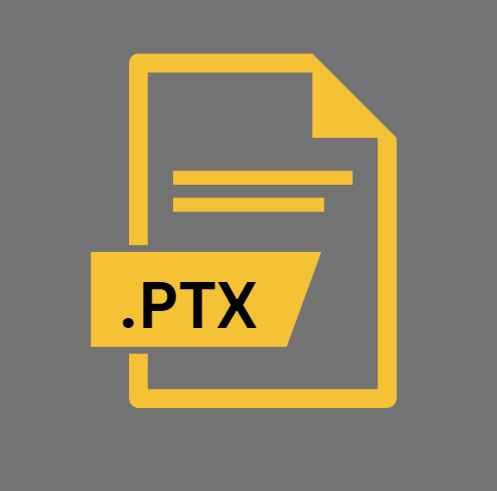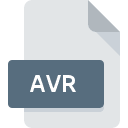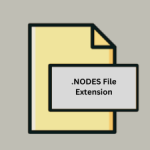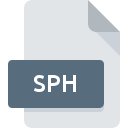.PTX File Extension

Pro Tools Session File
| Developer | Avid Technology |
| Popularity | |
| Category | Audio Files |
| Format | .PTX |
| Cross Platform | Update Soon |
What is an PTX file?
In the world of audio recording and music production, the .PTX file extension holds a significant place, as it is closely associated with one of the most renowned digital audio workstations (DAWs) – Pro Tools.
A .PTX file is essentially a Pro Tools Session File, and it plays a crucial role in storing and managing various elements of a music or audio project.
This comprehensive article will delve into the origin, history, file structure, technical specifications, as well as the advantages and disadvantages of .PTX files.
Additionally, we’ll explore how to convert and open these files on various platforms, including Windows, Linux, macOS, Android, iOS, and others.
More Information.
Pro Tools was initially developed for Macintosh computers by Evan Brooks and Peter Gotcher in the late 1980s.
Over the years, it evolved into a powerful tool for audio professionals, leading to the establishment of Avid as a prominent player in the industry.
With the introduction of .PTX files, Pro Tools users gained the ability to save and load entire project sessions, including audio files, MIDI data, automation, and various session settings.
This streamlined the workflow and allowed for easy collaboration among users working on the same project.
Origin Of This File.
The origin of .PTX files can be traced back to Avid Technology, Inc., a company specializing in digital audio and video editing software. Avid’s Pro Tools is a widely used DAW among professional musicians, sound engineers, and producers.
Pro Tools allows users to record, edit, mix, and master audio tracks with precision and flexibility. The .PTX file extension was specifically created to save and manage Pro Tools sessions.
File Structure Technical Specification.
A .PTX file is essentially an XML (Extensible Markup Language) file, which is a widely used format for storing structured data. It contains metadata and references to all the audio and MIDI files used in a Pro Tools session.
This metadata includes information about track names, settings, plug-in configurations, and more. The actual audio and MIDI data associated with the session are stored separately in a folder along with the .PTX file.
Technical Specification:
- File Format: .PTX (Pro Tools Session File)
- File Type: Binary
- File Category: Audio Project File
- File Size: Variable, depending on the complexity of the project
- Compatibility: Primarily associated with Avid Pro Tools software
- MIME Type: application/octet-stream
How to Convert the File?
Converting .PTX (Pro Tools Session File) to other formats can be challenging because .PTX files are specific to Pro Tools and contain a wide range of project data.
However, there are a few conversion options you can explore depending on your needs. Keep in mind that these methods may not cover all aspects of the .PTX file, and the results may vary. Here are some conversion possibilities:
1. Export as Audio:
If your primary goal is to extract audio from a .PTX file, you can export the individual tracks or stems as audio files. Here’s how to do it:
- Open the .PTX file in Pro Tools.
- Select the track you want to export.
- Go to the “File” menu.
- Choose “Export” or “Bounce to Disk.”
- Set the desired audio format and settings (e.g., WAV, MP3, AIFF, etc.).
- Specify the export location and filename.
- Click “Export” or “Bounce.”
Repeat these steps for each track you want to convert. This method allows you to obtain audio files that can be used in other DAWs or audio editing software.
2. Export as MIDI:
If you have MIDI data in your .PTX file that you want to convert, you can export it as a MIDI file. Here’s how:
- Open the .PTX file in Pro Tools.
- Select the MIDI track you want to export.
- Go to the “File” menu.
- Choose “Export as MIDI.”
- Specify the export location and filename.
- Click “Save” or “Export.”
This will create a standard MIDI file (.MID) that you can import into other DAWs or MIDI sequencers.
3. Use Third-Party Conversion Tools:
There are some third-party software tools designed to convert Pro Tools sessions or .PTX files to other DAW formats or interchange formats like AAF (Advanced Authoring Format) and OMF (Open Media Framework).
These tools may offer more comprehensive conversion options, preserving session data, track information, and automation. Some popular options include:
- AATranslator: AATranslator is a commercial software tool that can convert Pro Tools sessions (.PTX) to various other DAW formats, including Cubase, Reaper, Studio One, and more.
- X2Pro Audio Convert: X2Pro is a tool specifically designed to convert Final Cut Pro X projects to Pro Tools, but it can also be used to convert AAF files from other DAWs into Pro Tools sessions.
- OpenTL: OpenTL is an open-source project that aims to create an interchange format for Pro Tools sessions. It’s still in development but may provide more conversion options in the future.
4. Collaborate Using AAF or OMF:
If you need to collaborate with users on different DAWs and platforms, consider exporting your Pro Tools session as an AAF or OMF file.
These interchange formats are designed to facilitate cross-DAW compatibility. Here’s how to do it in Pro Tools:
- Open the .PTX file in Pro Tools.
- Go to the “File” menu.
- Choose “Export” and select “AAF” or “OMF” as the format.
- Configure the export settings, including the tracks you want to include.
- Specify the export location and filename.
- Click “Export” or “OK.”
The resulting AAF or OMF file can be imported into various other DAWs for collaborative work.
Advantages And Disadvantages.
Advantage:
- Comprehensive Project Management: .PTX files encapsulate an entire Pro Tools project, making it easy to organize, archive, and share projects with collaborators.
- Cross-Platform Compatibility: While Pro Tools itself is available for macOS and Windows, .PTX files can be shared and worked on across different operating systems, enabling collaboration among users on different platforms.
- Preservation of Project Settings: .PTX files store all project settings, including track configurations, effects, and automation data, ensuring that the original project can be accurately recreated.
- Easy Backup and Restoration: With .PTX files, it’s simple to create backups of your projects and restore them to their previous states in case of data loss or corruption.
Disadvantage:
- Proprietary Format: .PTX files are specific to Pro Tools, which means they can only be opened and edited using Pro Tools software. This can be limiting when working with other DAWs.
- Large File Sizes: Depending on the project’s complexity and the number of audio files included, .PTX files can become quite large, making them challenging to share via email or cloud storage.
- Compatibility Issues: Older versions of Pro Tools may not fully support .PTX files created with newer versions, potentially causing compatibility issues when collaborating with others.
How to Open PTX?
Open In Windows
Opening .PTX files in Windows is possible if you have Pro Tools software installed, as mentioned earlier. Pro Tools is available for Windows, and you can open .PTX files by following the steps outlined in the Windows section of the previous response.
Open In Linux
Running Pro Tools natively on Linux is not officially supported. However, you can try using compatibility layers or virtualization solutions like Wine or PlayOnLinux to run the Windows version of Pro Tools on a Linux system.
Keep in mind that this approach may not provide the best performance or compatibility, and it can be quite complex to set up.
Open In MAC
Opening .PTX files on macOS is straightforward if you have Pro Tools installed. As mentioned earlier, you can open .PTX files on macOS by following the steps outlined in the macOS section of the previous response.
Open In Android
Pro Tools does not have an official mobile app for Android, and .PTX files cannot be opened directly on Android devices.
Avid may release mobile solutions in the future, but as of now, it is not supported. You can still transfer audio files created with Pro Tools to Android devices for playback, but you won’t be able to open .PTX project files.
Open In IOS
Similar to Android, there is no official Pro Tools app for iOS devices, and you cannot directly open .PTX files on your iPhone or iPad.
As with Android, you can transfer audio files for playback, but working with .PTX project files on iOS is not possible at this time.
Open in Others
Due to the proprietary nature of .PTX files and their close association with Pro Tools, opening them in other software or platforms is not feasible. .PTX files are primarily meant to be used within the Pro Tools ecosystem.
If you need to collaborate with users on different platforms or DAWs, consider exporting audio stems or using interchange formats like AAF or OMF, which offer better cross-platform compatibility and allow others to work with your audio project data in their respective DAWs.













